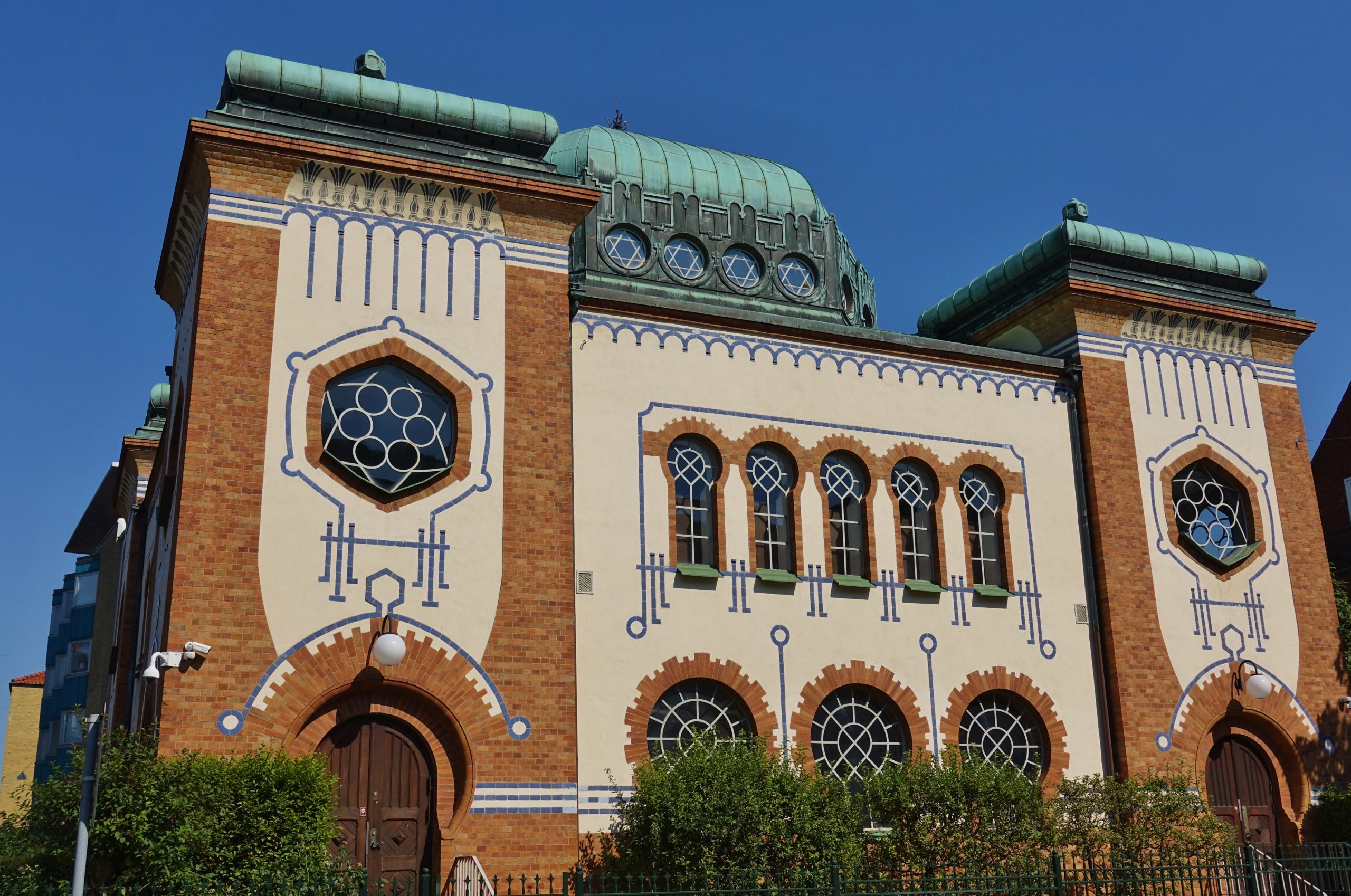A Royal Message
A conference on fighting antisemitism gives reasons for optimism
Dina Porat

On October 13 of this year, a well-attended conference was held in Malmö, Sweden, entitled “The Malmö International Forum on Holocaust Remembrance and Combating Antisemitism – Remember-ReAct.”
The first question that comes to mind is why such a conference was held in Malmö, a city known of late as a place from which Jews flee. The rise of radical Islam in the city led to a steady increase in antisemitic incidents. The Jewish community numbers today about 500 people; just a few years ago, there were 2,000.
Due to the Covid-19 pandemic, the conference was postponed for a year. However, the Swedish government remained adamant that Malmö was the right location, a position taken in no small part due to the opinion of Malmö’s young and energetic mayor, Katrin Stjernfeldt Jammeh, that her city was the right place.
Indeed, the selection of Malmö as the host city sent a message that one should not avoid action and confrontation in a most difficult place.
The Swedish government invested considerable efforts, human resources, and a substantial budget: the streets near the hotels where participants stayed and the venue where the conference was held were closed to traffic, a helicopter hovered in the sky above most of the day, and security personnel checked those entering each building.
There were many dignitaries to secure: King Carl Gustaf and Queen Silvia sat in the front row during the entire conference. Distinguished participants came from around the world, including dozens of heads of state, presidents, ministers, heads of organizations and institutes, and several academics.
A group of twelve experts (including myself) worked many hours via Zoom, offering advice to the organizers. However, the organizers decided to emphasize the participation of influential political personalities rather than a substantive academic discussion. There was a clear reason for that: the conference’s purpose was to secure the commitment and pledge of the leaders in attendance to preserve the Shoah’s memory and combat antisemitism.
Commitments have been made by a long list of governments and organizations. French President Emmanuel Macron, Canadian Prime Minister Justin Trudeau, US Secretary of State Anthony Blinken, UN Secretary General António Guterres, UNESCO, the European Union (which presented a comprehensive strategic plan), and many others promised to dedicate budgets, enlist human resources, educate, and legislate to identify incidents and expressions according to the Working Definition of Antisemitism.
Indeed, a sort of competition developed – who will do and give more. The UN’s Special Envoy, Miguel Moratinos, suggested adding a word to the title of the conference: Remember-React-Pledge.
What will the actual result of this conference and its commitments be? In January 2020, on International Holocaust Memorial Day, Yad Vashem hosted a similar conference with many participants, including heads of state and members of royal families who headed large delegations. They also gave their written commitments, which subsequently were compiled into an impressive book.
In February 2020, the world was besieged by the Coronavirus, and antisemitism increased and became more toxic and violent. Thus, it was difficult to make good on some of the promises made.
Next year, Sweden will chair the International Holocaust Remembrance Alliance (IHRA) founded 21 years ago in Stockholm on the initiative of then Swedish President Goran Persson. Today, 34 member nations participate in meetings, as well as observers from central international bodies.
Sweden’s current prime minister, Stefan Löfven, announced during the Malmö conference that IHRA would be an opportunity to monitor the fulfillment of the commitments, using the mechanism that IHRA presents. This is an encouraging sign.
And there were other. A short ceremony, an hour in length, took place in Malmö’s beautiful synagogue before the opening discussions. The conference’s participants, especially the Jews, filled the place for a “Celebration of Jewish life in Sweden,” as the invitation said.
Those gathered listened to thrilling Yiddish singing and to short lectures that pierced their hearts. The chairperson of the Swedish Jewish Communities, Aron Verständig, did not leave a dry eye when he related that during the height of the 1945 Yom Kippur prayers at the end of the War, someone entered and announced that refugees arrived at the port. The congregants ran out to greet them, and upon seeing their anguished and sorrowful condition, asked them, what is the thing they most need right now. They replied: “It is Yom Kippur, correct? Please take us to a Synagogue.”
During the ceremony, the Nordic Resistance Movement (NMR) projected antisemitic expressions and denials of the Holocaust on the outside walls of the synagogue. All of us who were huddled in the synagogue at the time listening to the speakers had no idea. And even if we knew, it would not have stopped us.
Two weeks after the conference took place, we can surmise that indeed, in Malmö, the commitments to combat antisemitism will pay off.
The achievement first and foremost belongs to the Prime Minister of Sweden. Löfven opened the conference with a candid statement that there is antisemitism in sections of Swedish society and that Holocaust remembrance means a special commitment towards the Jewish people. He closed it with the promise that Sweden will follow through with the commitments. Löfven also shared that more than once, he was asked why he was making such great efforts to realize the conference. His reply, he said, was always the same: this was the essence of being human.
The Prime Minister reminded us that when Raoul Wallenberg was asked why he was willing to sacrifice his life for Jews that he did not even know, he answered: “As far as I am concerned, there is no other choice.”
